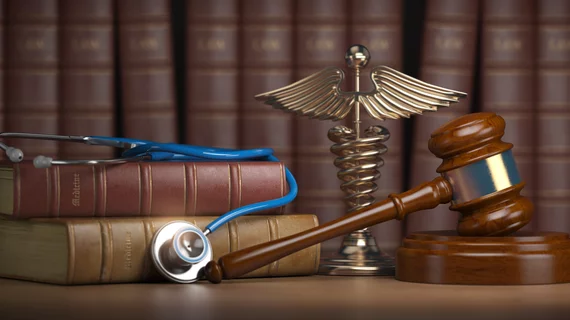58% of cardiologists have been named in a medical malpractice lawsuit
Fifty-eight percent of all cardiologists practicing in the United States have been named in a medical malpractice lawsuit, according to a new report from Medscape. That ranks the specialty No. 10 overall, behind plastic surgery (83%), surgery (83%), orthopedics (81%), urology (80%), OB/GYN (79%), surgery (74%), emergency medicine (70%), otolaryngology (68%) and radiology (64%).
The Medscape Malpractice Report 2021 included survey responses from more than 4,300 physicians from 29 different specialties. All responses were gathered from May to August 2021.
Looking at the overall totals, 51% of U.S. physicians said they have been named in a medical malpractice lawsuit. That includes 42% of primary care providers and 56% of specialists.
The most common reasons for a medical malpractice lawsuit included a failure to diagnose or a delayed diagnosis (31%), complications from treatment or surgery (29%), poor outcomes (26%) a failure to treat or a delayed treatment (16%) and wrongful death (13%).
These are some other key findings from the analysis:
- 13% of physicians were the only person named in the lawsuit, and 43% were named along with other parties.
- Just 7% of respondents said the lawsuit was warranted.
- 54% of respondents were very surprised by the lawsuit, 32% were somewhat surprised and 14% said they were not surprised at all.
- 33% of lawsuits were settled before the trial, 10% had a verdict in the physician’s favor and 2% had a verdict in the plaintiff’s favor
- 29% of respondents said the lawsuit had a negative impact on their medical career
Read the full report here.

